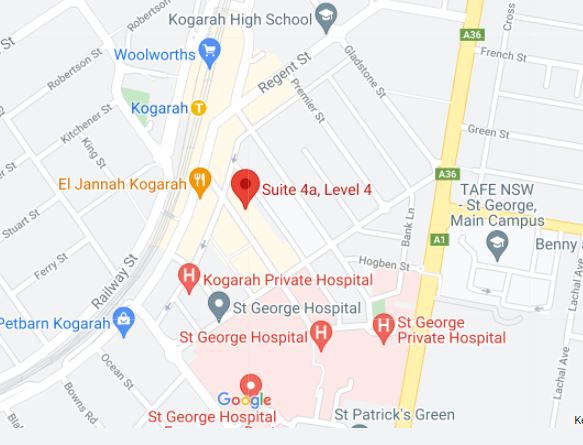It’s common for business owners to get frustrated that their bank account doesn’t seem to reflect their profits. It’s essential that you understand the difference between profit and cash, and why a high profit doesn’t necessarily result in more cash in your bank account, writes Brad Turville, director and business advisor at BJT Financial.
A profitable business can go out of business because it’s starved of cash. A business running at a loss can survive because it has access to funds from investors or financiers.
In other words, cash flow is every business’ reality.
Why your profits don’t match your cash flow
Don’t worry, you’re not alone!
The problem is that cash is simply never going to be the same as profit. Here are eight reasons why:
1. Tax/GST/Super payments
End of financial year (30 June) might have ticked by and your accountant has prepared your financial statements that shows Profit After Tax. But in this case, you might have many months before you need to pay the tax to the tax office. So the financials show the tax payable but you haven’t transferred that cash to the ATO yet.
Same with superannuation, it shows on your Profit & Loss Report as an expense every month but for many small businesses, you don’t pay until the end of the quarter.
As for GST, it doesn’t show on your Profit & Loss at all, so doesn’t affect your profit numbers, but it comes in and out of your bank account’s cash.
2. Asset purchases
If you purchase an asset for cash, such as a motor vehicle, office fit-out or bulldozer, this won’t affect your profit but by paying cash, it will reduce your bank balance.
You might be able to depreciate which I’ll cover off below.
3. Owner’s drawings
When you withdraw cash from your business for personal usage without properly accounting for it as a salary or wage, this will not show on your Profit & Loss as an expense, so won’t impact profit – but obviously, by taking cash you are reducing your business’ cash reserves.
4. Changes to debtors
The revenue on your Profit & Loss will increase as you send out more and more invoices. But this doesn’t guarantee that your customers are actually paying them quickly.
For example, if you send an invoice for $5,000 it will show an extra $5,000 revenue this month, but the customer might not pay for 90 days. So there is a timing difference between revenue showing on Profit & Loss and changing your profit, and actually receiving the cash from the customer.
5. Changes in inventory or work in progress
Your Profit & Loss Report records what inventory or work in progress has been consumed in the sales you’ve made. If you are holding excess or obsolete inventory, that is essentially cash tied up on the shelf in a warehouse.
The same goes with WIP, the more regularly you invoice it out, the quicker you turn it into cash.
6. Changes to creditors
As with debtors, your Profit & Loss Report records the expenses you’ve incurred during the period. If you haven’t yet paid some of these expenses, your profit will be lower but your cash will be higher.
So if you receive an invoice today for $400, it will show as a $400 expense on your Profit & Loss, but you might not pay the supplier for 45 days – at which point you then transfer the cash.
7. Loan repayments
Many loan repayments are made up of principal and interest components, but only the interest component is an expense showing on your Profit & Loss Report.
Which means that if you make monthly loan repayments of $2,750 (where $750 is interest and $2,000 is principal), your bank balance will reduce by $2,750 for the payment you make, but your profit will only go down by $750 for the interest expense you pick up.
8. Depreciation
Depreciation is the write-down of an asset’s value over its effective useful life. That means you can pick up an expense on your Profit & Loss and show a reduced asset holding value on your balance sheet, but no cash has changed hands – it is simply an accounting entry.
You could relate it to buying a new sports car – the day you drive it off the showroom floor, it starts losing value.
The key is to work with your accountant to review and understand why these amounts are different, identify areas where cash is being tied up, and build strategies to access improved cash flow.
The most successful businesses I work with have a concise and actionable Business Plan and a Cash Flow Forecast for at least the next 12 months. We then regularly review their numbers each month/quarter to keep the business on track, manage cash and make better business decisions.
These, I believe, are the foundations of good business management.
Source: Flying Solo July 2022
This article by Brad Turville is reproduced with the permission of Flying Solo – Australia’s micro business community. Find out more and join over 100K others https://www.flyingsolo.com.au/join.
Important:
This provides general information and hasn’t taken your circumstances into account. It’s important to consider your particular circumstances before deciding what’s right for you. Any information provided by the author detailed above is separate and external to our business and our Licensee. Neither our business, nor our Licensee take any responsibility for any action or any service provided by the author. Any links have been provided with permission for information purposes only and will take you to external websites, which are not connected to our company in any way. Note: Our company does not endorse and is not responsible for the accuracy of the contents/information contained within the linked site(s) ac www.flyingsolo.com.au > Logo file is here: https://bit.ly/flying-solo-logo





